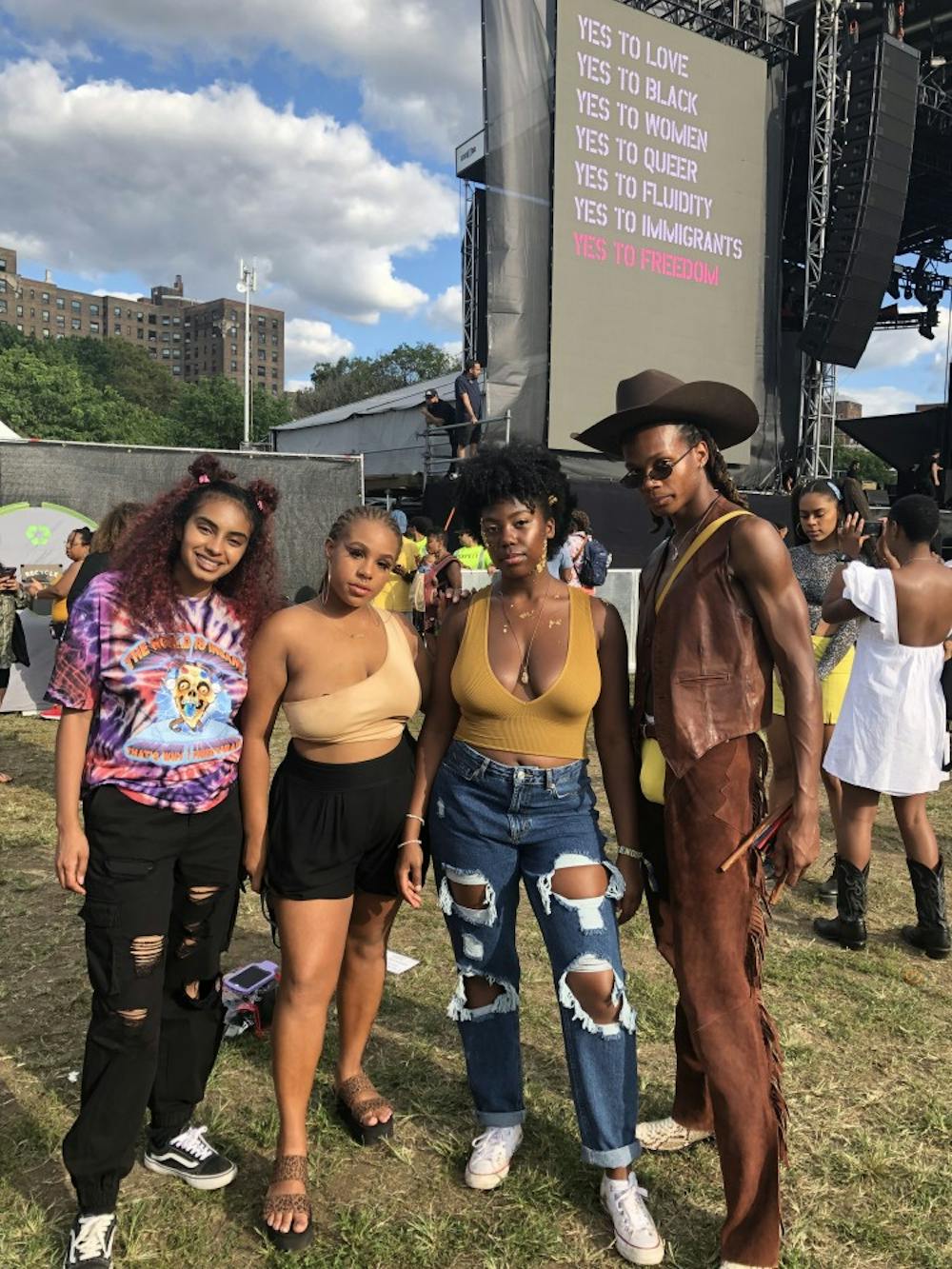Driving over 500 miles with friends from North Carolina State University and UNC-Chapel Hill, junior Ashley Gill embarked on a journey last Friday to Afropunk Brooklyn, a global Black arts and music festival garnering over 60,000 attendees annually.
“We left at 4:00 a.m. from Raleigh and arrived around 3:00 p.m. in NYC. The morning wasn’t bad at all,” Gill told me. “Everyone was really excited to be in each other’s presence and we slept for most of the ride.”
UNC MJ-School student Venetia Busby and I opted to fly to New York. She arrived at the Raleigh-Durham International Airport at 3:30 a.m. for her 5 a.m. departure and I followed later, leaving Carolina's campus at 3 p.m. We lodged in Crown Heights, Brooklyn for the weekend, a 30 to 40-minute commute away from Commodore Barry Park where the festival was held. Busby said she and Gill had been planning this since April 2019.
“The process was first finding a place for all of us to sleep. We rented a large Airbnb to fit 12+ people, then bought our Afropunk tickets, and then lastly, we found travel accommodations,” Busby said.
Although Afropunk Atlanta is coming up this October, there was something so alluring about attending Afropunk in New York that they could not shake.
Busby said, “Brooklyn is the birthplace of Afropunk. It is rich and vibrant with culture there. At UNC, it’s very hard to find a space where your Blackness and creativeness is heard and seen...whereas this was a safe space to be as unapologetically me, just as I please.”
Afropunk Festival was founded in 2005 by James Spooner and Michael Morgan, and the theme this year is “We See You.” For, the festival is not only a form of enjoyment, but an act of resistance and representative of a counter-culture movement allowing Black individuals to safely and freely express themselves.
In an effort to preserve these ideals and curate an inclusive environment, the festival has a strict no sexism, no racism, no ableism, no homophobia, no fatphobia, no transphobia, no hatefulness and no "Trumpism" policy. For Gill, Afropunk posed a much needed contrast to her experience as a Black student at Carolina.
“I’ve never experienced being in such a safe, supportive and breathtakingly beautiful space, so much to the point [where] I crave it here at Carolina. Yes, I have been able to connect with other Black people at Carolina but for me personally, I haven’t found a group cultivating that extreme self expression, openness and artistry here,” Gill told me.



